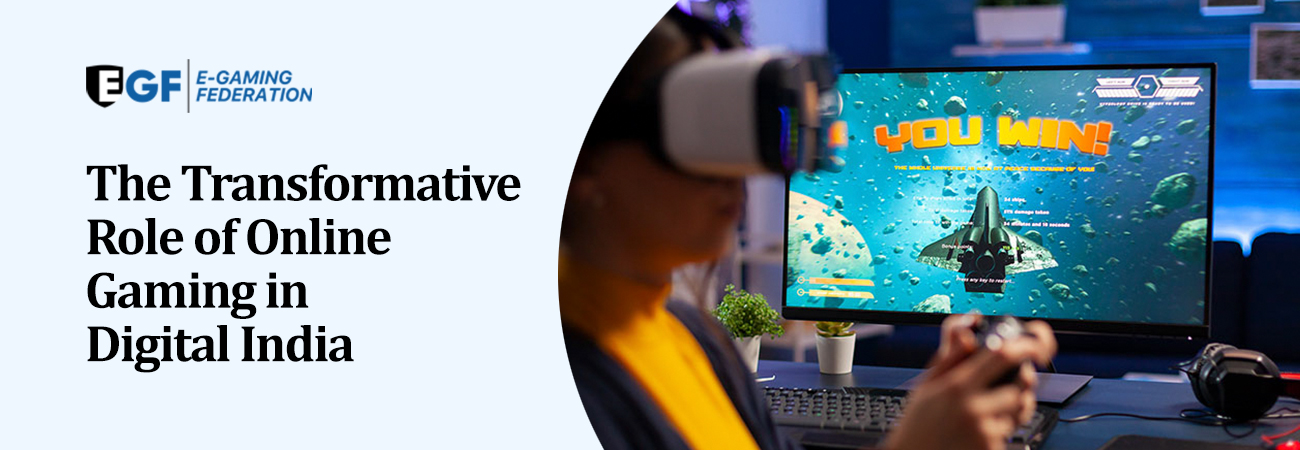

India has experienced a remarkable digital revolution in recent years, with significant transformations in various sectors of the economy, including education, entertainment, and technology. The ambitious Digital India initiative, driven by the government, aims to empower the nation digitally and foster a knowledge-based economy. In this transformation, online gaming has emerged as a powerful driver, reshaping how people connect, learn, and entertain themselves.
One of the notable outcomes of this digitalization wave is the increasing development of digital infrastructure. This has attracted a young and energetic audience with more disposable income, easier access to smartphones, and affordable internet data. With nearly 500 million users, India ranks as the second-largest smartphone market globally, following China. The online gaming industry is on the verge of another significant shift as game developers continually push boundaries to offer gamers immersive and challenging gameplay experiences. The forthcoming 5G-enabled mobile devices are expected to revolutionize the gaming experience, providing low latency, high-quality graphics, and seamless gameplay.
This article explores the crucial role of online or digital gaming in the transformation of Digital India and highlights its contributions to fostering innovation, social connections, skill development, and the overall digital landscape transition in the country.
Online gaming has been at the forefront of technical innovation in India. Game creators continuously push the boundaries of technology to produce immersive and compelling gaming experiences. This has led to the adoption of cutting-edge technologies, including virtual reality (VR), augmented reality (AR), cloud gaming, and real-time multiplayer experiences. Beyond gaming, these innovations find applications in various fields like education, healthcare, and training programs.
Gaming has transcended its conventional perception as a solitary hobby to become a social phenomenon. Online multiplayer games provide players with platforms to connect, communicate, and collaborate with fellow gamers worldwide. These interactions foster social relationships, breaking geographical barriers and allowing players to form friendships and communities. Professional gaming events have brought players and fans together, united by their passion for the sport, further strengthening these bonds.
Contrary to common assumptions, the online gaming industry offers ample opportunities for skill improvement. Many games require strategic thinking, problem-solving, teamwork, and quick decision-making, which are essential skills in today's digital age. Players can enhance their cognitive abilities, eye-hand coordination, and communication skills through gaming. Recognizing these advantages, several educational institutions and organizations have started incorporating gaming components into their training programs and curricula, making learning more engaging and interactive.
The online gaming industry has emerged as a significant contributor to India's economy. With a vast and growing user base, including casual and professional gamers, the industry has witnessed substantial investments in infrastructure, game development studios, and eSports events. This expansion has created numerous career opportunities for game designers, developers, testers, content creators, streamers, event organizers, and marketers. Additionally, the industry's revenue positively impacts allied sectors such as advertising, retail, and streaming platforms.
Online or mobile gaming has played a crucial role in increasing digital inclusion and access in India. The rising availability of low-cost cell phones and internet connectivity has enabled a broader segment of the population, including rural areas, to access online gaming sector . This inclusivity has bridged the digital gap, generating a sense of inclusion in the digital ecosystem. The combined efforts of the government's Digital India plan and the gaming sector have democratized access to technology and entertainment.
The introduction of digital gaming has brought about a significant behavioural shift, particularly among younger generations in India. Gaming has become an integral part of their leisure and entertainment choices, impacting various aspects of society, including popular culture, art, music, and fashion. Furthermore, Indian gamers and content creators have gained global recognition, enhancing India's cultural reputation on the global stage.
In summary, the online gaming sector has emerged as a pivotal force in India's digital development. Its impact on the country's digital landscape cannot be overstated, ranging from driving technological innovation to fostering social connections, supporting skill development, and contributing to economic progress. As India continues to embrace digital technologies, digital gaming will play an increasingly significant role in shaping the future of entertainment, education, and social engagement. With the right regulations, infrastructure, and support, online gaming holds the potential to drive further transformation and growth in Digital India.
